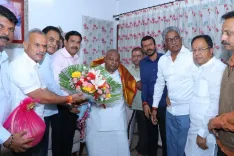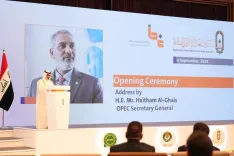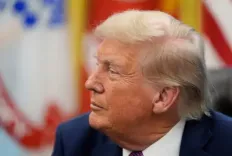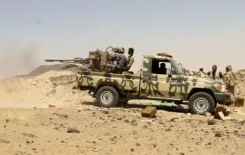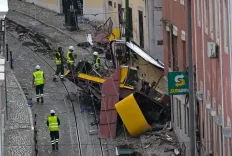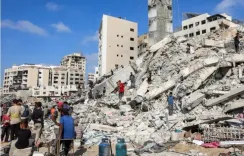What Are JNU Students' Union President's Concerns on Armed Forces Casualties in Operation Sindoor?
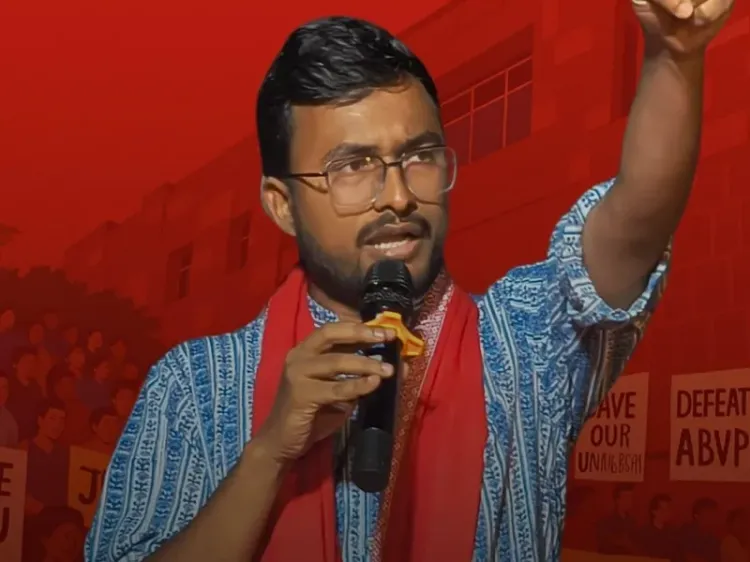
Synopsis
Key Takeaways
- Lack of transparency in military casualty data raises public concern.
- Nitish Kumar emphasizes the importance of diplomatic solutions.
- Communal violence is escalating following military actions.
- Criticism of media misinformation impacting public perception.
- Need for accountability from the government regarding military operations.
New Delhi, May 22 (NationPress) The President of the JNU Students' Union, Nitish Kumar, has expressed profound concerns regarding the government's management of recent military scenarios, particularly concerning “Operation Sindoor” and the terror attack in Pahalgam.
Kumar highlighted the troubling lack of transparency from the government, especially as the nation witnesses the arrival of soldiers' remains from various regions, yet no official statistics on the casualties sustained by the Indian Army have been released.
In a candid interview with IANS, Kumar urged the government to disclose accurate figures, asserting that the populace deserves to know the genuine toll of conflict.
While strongly condemning the terror attack in Pahalgam, he criticized the government's rapid military response against Pakistan, suggesting that it appeared premeditated and evaded accountability for significant lapses in internal security.
In a period where both India and Pakistan—nuclear-armed adversaries—are at loggerheads, he emphasized the importance of prioritizing de-escalation and diplomacy over warlike rhetoric. Kumar raised alarms over the disturbing rise in communal violence following the attack, particularly incidents aimed at Muslims.
He charged the government with failing to mitigate the escalating hate and instead, contributing to a polarizing narrative. Advocating for a diplomatic offensive instead of full-scale warfare, he suggested that isolating Pakistan internationally for harboring terrorists would be a more effective and sustainable strategy.
"The manner in which our defense forces reacted post-initial attacks was evident, but now we see Pakistan stating that the assaults targeted not only military installations but also civilian areas. Though Pakistan's claims are inconsequential, the core issue remains: should such occurrences be resolved through outright war, or should we focus on diplomatically isolating Pakistan?" Kumar questioned.
He referenced past events, including those from 2018, to illustrate that military action alone has repeatedly failed to disrupt the cycle of violence.
Kumar cautioned about a possible conspiracy to disrupt internal peace, warning that such attacks and their repercussions often incite heightened communal tensions, playing directly into the hands of forces aiming to divide the nation.
"It could very well be a conspiracy. If such an attack has taken place, it also aims to disturb the internal peace of the country—heightening communal tension. This has historically occurred where such incidents are intentionally orchestrated to foster unrest within the nation,” he stated.
In his closing remarks, Kumar challenged the government to clarify whether the military actions had achieved their intended objectives—whether the attackers in Pahalgam had truly been neutralized and if the situation in Kashmir, particularly regarding safety and tourism, had improved.
He welcomed the Army's decision to conduct a press briefing but criticized certain media segments for propagating misinformation, labeling them as “Godi Media” for inciting jingoism through irresponsible reporting of attacks on Karachi and Islamabad.
Kumar stressed the need for truth over theatrics, reiterating his concerns about the absence of clear data on the casualties endured by the Indian armed forces amidst the recent wave of violence. While the nation mourns the arrival of soldiers’ mortal remains, the government has yet to provide a definitive and official tally of the losses.
“The Pakistani army has claimed they inflicted considerable damage, yet on our side, the Indian Army has also suffered losses. We lack clear information regarding the number of soldiers who have fallen. We only witness mortal remains arriving from various regions, but there is no official number of the martyrs. This is something the Army must clarify,” he remarked.
While condemning the terrorist attack, Kumar also criticized the government’s management of the situation post-attack, notably the surge in communal tensions.
He highlighted the dangers of escalating hostilities between India and Pakistan and advocated for a diplomatic, internationally coordinated initiative to isolate Pakistan if it continues to harbor terrorists. He warned against full-scale military retaliation, asserting that war disproportionately impacts the impoverished, calling instead for strategic, long-term solutions.
Kumar also pointed out that incidents of communal violence and misinformation from certain media outlets further undermine national unity and distract from the critical issue—ensuring the safety and security of every Indian citizen, especially in sensitive regions like Kashmir.



